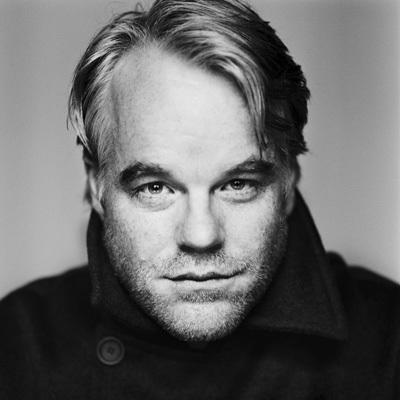
Philip Seymour Hoffman’s death floored me. Celebrities die more-or-less self-inflicted deaths at a depressingly regular rate but we usually find (or invent) a justification: too much or too little praise, an unhappy childhood, failed relationships, or general neurosis. We are far from comfortable with the fact that we die alone; the actor’s death reveals the unspeakable truth that at a fundamental level we live alone too.
I was unaware of Hoffman’s struggles with addiction. I knew him only as an actor who owned every scene he played. He had everything in the right quantities, or so it seemed. Not just acclaim but authentic, blazing talent. Artists are known to crumble under the weight of adulation but Hoffman wasn’t showered with facile praise, he commanded respect. He was a bona fide genius, recognised and rewarded as such. Success, talent, vocation, material comfort – he had it all. He also had a partner and three young children, again, conventional harbingers of happiness. He came from a comfortable, educated background where his talent was nurtured. There are no reports that he was unduly pressured, prodded or thwarted on his way to becoming his luminous self.
So his death caught me like a sucker punch. To use Joan Didion’s phrase Hoffman had every “doubtful amulet” of respect our culture confers. He was admired, loved, feted, rewarded; he had a loving family, healthy children, meaningful work, agency; he had every external thing anyone can expect and far more than many have, or dare to hope for.
The poverty-stricken junkie, the starving artist junkie, the hedonistic junkie, the survivor-of-abuse junkie all fit a narrative that, though disturbing, leaves our fundamental cultural assumptions unchallenged. We believe that people are unhappy because they lack something. What we aspire to depends on our class, education, aesthetics and morals. We crave money or celebrity; artistic or professional achievement; relationships; or status. All these are important in varying degrees but our obsession with external indicators leads to a fatally flawed syllogism of satisfaction. Because we can always consume more we assume our discontents are a matter of not enough.
Philip Seymour Hoffman dead with a needle in his arm mocks this false logic. Nothing extrinsic is ever enough. We have to make a separate peace. This is a fraught, complex truth. We’re social creatures, acculturated to consumption. Hoffman’s heart-wrenching death is a warning knell we’d rather not hear. It tells us that it isn’t enough to win the approbation of others or pile up the most toys. It says plainly that we have to do the hard work of finding our own reason to live; and hints we may have to look beyond the traditional tokens of family, acquisition, or fame. We are unique. The burden and privilege of that singularity is the responsibility to define and create a life we can live with.
We spend our time surrounded and guided by parents, siblings, teachers, friends, mentors, lovers; we believe in destiny, Jesus, Buddha, Gaia, or the law of attraction. But no matter what we accept, or look to for meaning, the buck stops with us. Life is intrinsically, dauntingly anti-social. Our pursuits are meaningful only insofar as they lead to self-respect and self-acceptance, which must come from within. Nobody else can give us enough love, support, praise or nurture to change our minds about who we are. We must accept this and treat ourselves gently as we progress, however haltingly, towards self-realisation.
In a culture that enshrines consumption (of goods, affection, idolatry) it is standard practice to seek meaning in external gratification. Hoffman’s death proves it isn’t enough. The lies we tell ourselves when someone less talented, less blessed, less successful, dies, crumble to dust when we are confronted with the loss of someone who “had it all”. He was a mature man, an artist in the prime of his powers, a public success. By every convention of our culture he should have been immune to the emptiness that drives people to put needles in their veins. That he was not reveals our vulnerability and forces us to consider our internal affairs. We are socialised and educated to live with others; little effort is made to teach us to live with ourselves. Until we learn to cultivate self-regard we are bound to make tragic mistakes in our quest for meaning.
